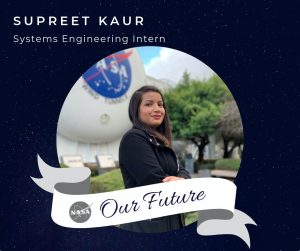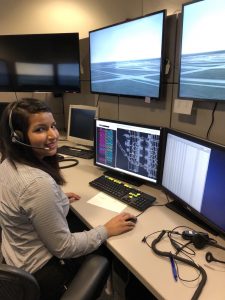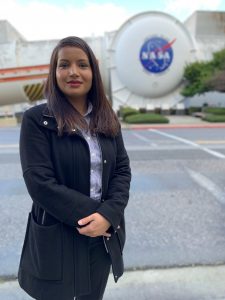I am not a traditional high school to college student. My family and I came to this country as refugees. As immigrants we focused more on the day-to-day survival, so a higher education was never in the works for me, nor was it ever encouraged. The predetermined plan was that I would graduate high school and follow the traditional path of an arranged marriage.
I am the first woman in my family to choose an education and a career in STEM over what was expected of me. Deciding who I wanted to be was the easy part, the execution and risk it involved was another story. My education and independence had a very rocky beginning; I didn’t have any support or the faintest idea of what direction to go in. So I spent several years taking classes at a local community college to figure out exactly what I wanted to do. I explored various subjects; microbiology, anatomy, women in art history, political science, etc., learned what the path to higher education looks like, and built the self-confidence I needed to thrive on my own. During that journey I met many people who became my allies, mentors, and support system. They encouraged me to dream big, and so I applied to the NASA Community College Aerospace Scholar (NCAS) program. And that is how I first came to NASA’s Ames Research Center (ARC).

I first came to NASA ARC as a NASA Community College Aerospace Scholar. It was a very concentrated experience – the tours, lectures from esteemed researchers, the rover competition – I’d never experienced anything like that before. And I was hooked! I knew from that experience I wanted to return. I wanted to be a part of the NASA culture, and to be around some of the most brilliant individuals who are working passionately towards something they believe in.
When I came to NASA ARC as a Systems Engineer summer intern, for the Airspace Technology Demonstration 2 (ATD-2) project, I had no prior knowledge of Air Traffic Management (ATM). So you can imagine my surprise when in the first week of my internship I had the opportunity to participate as a pseudo ramp controller in a Human-in-the-loop (HITL) simulation alongside professional pilots and air traffic controllers to test scenarios using the Integrated Arrival, Departure, and Surface (IADS) software. I was diving into the deep end of the pool without any floaties. Although I was nervous, every single person in that simulation had so much faith that I would get the hang of it, I began to believe it too. With every passing day my education kicked in and I felt my self-confidence rise. By the end of the simulation I not only understood the role NASA plays in the ATD-2 project, but it allowed me to the visualize the problem we are trying to solve.

An important lesson I’ve learned from my mentor, Andrew Ging, is how to stay calm and be agile in the midst of the unknown. Unforeseen things can happen in experimental settings; systems crash or behave unexpectedly, sometimes plan A and B are no longer feasible, or we find ourselves in uncharted territory. I’ve learned to approach problems with a holistic approach by designing strategic and tactical plans. Thus, I’ve learned to better prioritize which problem needs to be addressed first, determine if the problem needs a short term or a long term solution, think about the outcome of the solutions I implement. When you dissect a problem through abstract thinking, and start defining all the unknowns, the problem itself becomes less intimidating making it easier to stay calm.
Professionally, this internship has sharpened my systems thinking skills. I know I can walk into any situation, find the problem, and propose several solutions to resolve that problem. I am no longer intimidated by the things I do not know, instead I’ve learned to use my inexperience as an asset – sometimes a problem needs an outside perspective, without preconceived ideas. Personally, being a NASA intern and returning as a NCAS Mentor has given me insight about what I want out of a career. I now understand the value of work-life balance and being part of a broader community.
Through outreach I am able to connect and relate to community college students who are finding their own path in the STEM industry. This internship allows me to give back to the community which has fostered my personal and professional growth.

About the Author
Supreet Kaur is a current student at San Jose State University, earning a Bachelor of Science in Industrial & Systems Engineering. Supreet recently became one of the recipients for the Brooke Owens Fellowship Class of 2019. The fellowship is designed to connect women in aerospace with a purpose driven summer internship, a leadership summit, and mentorship with pioneers in the industry. This summer, she will be working at the Center for Strategic & International Studies (CSIS) as a research intern in the Aerospace Security Project.
To learn more about NASA Internships, please visit intern.nasa.gov. Start your journey today! #NASAinterns
